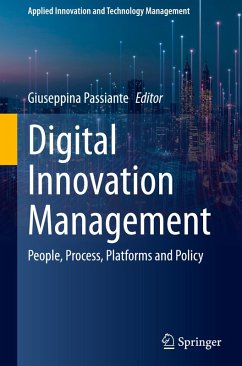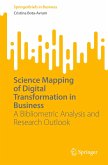The rapid expansion of digital innovation is reshaping organizations for greater agility and resilience. Digital Innovation Management shows how digital innovation management practices can facilitate project coordination aimed at business success while prioritizing environmental and social responsibility. Structured around the four pillars of digital innovation (People, Process, Platforms and Policy), the book illustrates how digital and physical elements of innovation management can be integrated to create new marketing offerings, organizational processes, and business models that align with sustainability and human-centric ideals. The book supports a theoretical framing of digital innovation management with case studies of creative digital ecosystems such as smart cities, which leverage integrated digital systems to advance research, innovation, and education. Finally, the book provides an analysis of emerging technologies, such as artificial intelligence and blockchain, that may introduce significant digital innovations to make smarter organizations and territories.
Bitte wählen Sie Ihr Anliegen aus.
Rechnungen
Retourenschein anfordern
Bestellstatus
Storno








